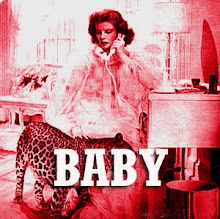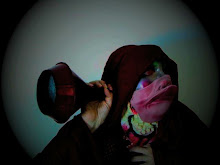Republished in Nictoglobe, Vol. 18, Issue 4 (2010), Amsterdam, The Netherlands, with the kind permission of Curt Cloninger
'This essay applies Mikhail Bakhtin's language theory of "the utterance" to the machinic event of "the glitch" in order to illuminate contemporary glitch art practices, and to suggest fruitful ways in which they might proceed. I understand "the glitch" to be an affective event generated by a media machine (computer, projector, game console, LCD screen, etc.) running in real-time, an event which creates an artifact that colors and modulates any "signal" or "content" being sent via that machine. In 1962, John Glenn famously defined "glitch" as "a spike or change in voltage in an electrical current."1 "Glitch" has since come to demarcate a set of audio/visual artistic practices which capture, exploit, and produce glitch artifacts.
My goal is not to end all conversation about glitch art by ontologically overdetermining what a glitch is and how exactly it works. Instead, I pose this specific, particular position in the hopes of ending some of the more dead-end and circular conversations about the glitch. I also hope this essay will open up more fruitfully problematic conversations, and will lead to less banal, more conceptually rigorous works of art.' ... for more click here
skip to main |
skip to sidebar








Search
about the 'sounding' of sounded-language
... this blog continues to be a bag of tricks ... l originally started it to share sound art links but it has been revamped and is now focusing on language. Like the 'unsound' it still ranges from spoken and sung cacophonies, links to writers such as Stein but now many others, my furiously fitful notion of sounded language and its scores, and hybrid or experimental writing, especially with a flarffy twist. It previously worked for me as a research space for my PhD so posts before April 2023 will reflect that. Just to be clear 'unsound' for me is no way a value judgment ... majena mafe
more followers welcome


my sounded-language



Labels
voice
(185)
soundings
(154)
un-sound
(117)
xxperimental
(114)
sound
(110)
comedy/transgression
(104)
artists
(91)
my own work
(84)
multi-media
(79)
girrl sounds
(72)
perverse
(47)
video
(45)
stein
(38)
performance
(36)
theory
(36)
girrl artists
(34)
text
(33)
song
(31)
sounded-language
(28)
girrl technology
(27)
digital sound
(25)
film
(23)
things/nouns
(22)
language poetics
(20)
girrl video
(19)
questions
(19)
artist
(18)
writing
(18)
digital media
(17)
silence
(14)
voice sounds
(14)
gospel
(13)
soundings xxamples others
(13)
cut-up sound
(12)
outsider-music
(12)
feminism
(11)
meredith monk
(11)
theory philosophy
(11)
art
(10)
excess
(10)
feminist ecriture
(10)
flarf
(10)
gertrude stein
(10)
glossolalia
(10)
listening
(10)
opera
(10)
sonic art
(10)
digital
(9)
girrrl sounds
(9)
great blogs
(8)
outsider
(8)
pleasure principle and beyond
(8)
poetry
(8)
puppets
(8)
voice recordings
(8)
radio
(7)
scores
(7)
that-unsound
(7)
ventriloquist dummy
(7)
activism sounded-language
(6)
cartoon
(6)
funny girrls
(6)
language
(6)
pippilloti rist
(6)
singing
(6)
sound instruments
(6)
stockhausen
(6)
things/nouns stein
(6)
annimation
(5)
collaboration
(5)
cyberfeminism
(5)
feminist
(5)
software
(5)
sound art
(5)
sound-tools
(5)
speech sounds
(5)
xxamples others
(5)
TV
(4)
body
(4)
composer
(4)
continental philosophy
(4)
dada
(4)
essay
(4)
glitch
(4)
improvisation
(4)
installation art
(4)
mouth singing
(4)
noise
(4)
object-orientated philosophy
(4)
robots
(4)
slave songs
(4)
sound radio
(4)
Speech synthesis
(3)
animal sounds
(3)
books
(3)
chopin
(3)
concrete poetry
(3)
conference
(3)
dummies
(3)
echo notes
(3)
ecstacy digital sound
(3)
experimental
(3)
inuit
(3)
lyotard
(3)
modernism
(3)
net
(3)
soundpoetry online-magazines sounded-language
(3)
speaking in tongues
(3)
stars
(3)
ted
(3)
voice of the poet
(3)
weird
(3)
words
(3)
xxamples
(3)
Cathy Berberin
(2)
Creative Commons
(2)
FAIL
(2)
Lacan
(2)
Linguistics
(2)
Nam June Paik
(2)
Sadie Plant
(2)
archives
(2)
audio
(2)
beckett
(2)
cartoons
(2)
computer technology
(2)
digtal
(2)
electronic-sound
(2)
event
(2)
free culture
(2)
hackivism
(2)
hearing
(2)
journals
(2)
kristeva
(2)
literature
(2)
lo-fi
(2)
machines
(2)
mae west
(2)
manifesto
(2)
masks
(2)
mouth
(2)
music theory
(2)
musical
(2)
poetry song
(2)
song graph
(2)
sound machine opera
(2)
sound-machines
(2)
sound. radio
(2)
speculative-realism
(2)
the ear
(2)
throat-singing
(2)
toy sound
(2)
youtube
(2)
Apollinaire
(1)
Artificial intelligence
(1)
Avital Ronnel
(1)
Blanchot
(1)
Cixous
(1)
Deleuze
(1)
Digital film
(1)
Harman
(1)
Joan-Rivers
(1)
Marshall McLuhan
(1)
Ronell
(1)
Steve Roden
(1)
ada lovelace
(1)
affect
(1)
ann carson
(1)
beauty
(1)
birth
(1)
bjork
(1)
blues
(1)
brain
(1)
cachophony
(1)
censoring
(1)
choir song
(1)
christian marclay
(1)
code
(1)
collective
(1)
connectivity
(1)
copying
(1)
copyleft
(1)
costume
(1)
cowboy
(1)
cybermetrics
(1)
daphne oram
(1)
data
(1)
definition
(1)
drag
(1)
emily dickinson
(1)
facebook
(1)
fantasia
(1)
festivals
(1)
film-producers
(1)
furthernoise
(1)
georges aperghis
(1)
gestalt
(1)
healing
(1)
hypertext
(1)
hysteria
(1)
ineffable
(1)
judy dunaway
(1)
karaoke
(1)
kenneth goldsmith
(1)
lady gaga
(1)
links
(1)
linux
(1)
loops
(1)
lost languages
(1)
manifestos
(1)
maryfesto
(1)
masonna
(1)
michel serres
(1)
music
(1)
music blogs
(1)
musicians
(1)
opera(operation)
(1)
organization
(1)
people like us
(1)
philosophy
(1)
pierre schaffer
(1)
plays radio-plays
(1)
poetics
(1)
pporn
(1)
preech
(1)
psychanalytic
(1)
publishers
(1)
radicality
(1)
radio-plays
(1)
rag
(1)
remix
(1)
research
(1)
resonance fm
(1)
robert leparge
(1)
scores. sonic art
(1)
scotish roots
(1)
sensoring
(1)
sex
(1)
siging-body
(1)
sneezing
(1)
sound machine orchestra
(1)
sound-books
(1)
sphinx
(1)
spirituals
(1)
susan sontag. barthe
(1)
transdisciplinary
(1)
ubu web
(1)
virginas
(1)
vocaloid
(1)
web
(1)
whitehead
(1)
wiki
(1)
wishart
(1)
wittgenstein
(1)
yodelling
(1)
Archive
-
▼
2010
(312)
-
▼
November
(22)
- Torchwool - Scottish Falsetto Sock Puppet Theatre
- Facebook Song - Scottish Falsetto Sock Puppet Theatre
- GOOOOO WIKI LEAKS...........
- glitched-staticked ear licking Linex-FM Radio
- CAP Computer aided poetry yummo!!
- tribute is not theft
- 100 GREATEST HITS OF YOUTUBE IN 4 MINUTES
- Lee Wells on Nam June Paik
- Big Brother Cycle Spy / Dieter Froese
- Long Live the Web The Web is critical not merely ...
- sketches of mind - funny mouths- funny minds
- fantastoc ODD outsider sound recordings here on LO...
- Lone Ranger, The - Trailer (1956)
- andy pandy
- Bongwater: Nick Cave Dolls
- Bongwater - The Power of Pussy
- Katy Perry - creamy titts
- Tribute ... poem by Annie Finch
- brilliant essay on glitch linguistics: the Machine...
- Something new is going on...copiously copying ... ...
- Half of the world's 6500 to 7000 languages are exp...
- query the saddest song sung in the movies from Kur...
-
▼
November
(22)
Links
- ADLIB
- ALTX
- ANAT
- arras
- art blart
- art fag city
- art21
- assemblage womens media gallery -trace
- chantelaines blog book project
- contemporary art daily
- continental review
- digital artists handbook
- digital berlin
- ekphrasis
- electonic disturbance committee
- electronic book review
- epc poetry centre
- etymology on line
- everyday listening
- ferrum wheel
- furtherfield
- gammm
- harriet poetry foundation
- i blame the patriarchy
- indie feed performance poetry
- kclogs
- L=A=N=G=U=A=G=E
- laurable's poetry audio links
- laval subjects
- M/E/A/N/I/N/G
- majena mafe
- mcsweeneys
- modern french literature
- mother tongue annoyances
- mute- culture and politics after the net
- narrativity
- narratology
- netEX
- networked music review
- NETWORKED PERFORMANCE-TURBULENCE BLOG
- New Media Knowledge
- NICTOGLOBE
- noise and capatalism
- old boys net work
- poet and poem webcast
- poetry london
- pussipo
- reconfigerations
- resonance fm radio
- rhizome
- rhubarb is susan
- rough theory
- slought institute
- sub.rosa cyberfeminism
- table of FORMS
- text etc.com
- the continental review
- the mire
- the wire
- third factory
- TURBULENCE
- UBU WEB
- unplace project
- unplacements between
- untranslatable
- WACK
- well nourished moon
- when pressed
- where all poets end up
- WOMENS ART LINKS
- wompo web
- words in here
- write out loud

mouths that matter
- A+ all mouths matter
- Ada Lovelace
- allen s weiss
- anna kavan
- artaud
- carol maso
- caroline bergvall
- cixous
- clarice lispector
- deleuze and guattari
- duchamp
- duplessis
- emily dickinson
- gertrude stein
- H.D.
- hejinian
- irigaray
- joan retallack
- john cage
- julia kristeva
- kathy acker
- kristin oppenheim
- Laval Subjects
- lecercle
- leslie scalapino
- louise bourgeois
- meredith monk
- michel serres
- monique wittigue
- ruth salvaggio
- sainkho namtchylak
- samuel beckett
- sister gertrude
- steven connors
- thalia field
- tilly olsen
texts that matter
- Bernstein Charles Close Listenining Poetry and the Performed Word
- Cixous Helene Coming to Writing and other Essays
- Deleuze & Guattari A Thousand Plateaus
- Fraser Kathleen Translating the Unspeakable: Poetry and the Innovative Necessity Modern & Contemporary Poetics
- Frost Elisabeth A. & Hogue Cynthia Innovative Women Poets
- Frost Elisabeth A. Innovative Women Poets: An Anthology of Contemporary Poetry and Interviews
- Ratcliffe Stephen Listening to Reading
- Retallack Joan How to do Things with Words
- Salvaggio Ruth The Sound of Feminist Theory
- Scalapino Leslie at epc buffalo
- Serres Michel Genesis
- Shultis C. Silencing the Sounded Self-John Cage and the American Experimental Tradition
- Stein Gertrude How To Write
- Stein Gertrude How Writing is Written
- Stein Gertrude Lifting Belly
- Stein Gertrude Useful Knowledge
- Stein GertrudeTender Buttons
- Stein Gertrude Gertrude Stein and her Brother
- Turner Kay Baby Precious Always Shines: Selected Love Notes Between Gertrude Stein and Alice B. Toklas
unsound-sound
- 365 days
- ALTX
- arras
- audible word
- axis
- banjo poets talking
- biographeme
- deep wireless
- digital artists handbook
- digital berlin
- dispatx
- e-poets
- electronic book review
- epc
- fallt
- fish house poems
- furtherfield
- furthernoise
- glossolalia
- half theory
- laetitia sonami
- language removal system
- lipstick of noise
- meredith monk
- miya masaoka
- mutant sounds
- naropa sound archive
- noisy sound dictionary
- pamela Z
- pauline oliveros
- pennsound
- philly sound
- plunder phonics
- PROGRAMMATO
- pure data
- rabbit light movies
- radical musicology
- rhizome
- room 40
- sound authors
- sound lab
- soundsite
- splab
- the relay project
- turbulence
- turtles 78rpm jukebox
- ubu sound
- ubu web
- verb
- WFMU
- when pressed
- wordsalad
- write out loud
- yong hae chang

lit journals
- 42 opus
- abscent magazine
- ALTX
- anti-poetry
- audible word
- aught
- bad press
- bear parade
- blazeVOX
- DIAGRAM
- drunken boat
- eoagh
- fascicle
- Fiction Collective 2
- galatea resurrects
- horse less press
- How2
- ine less magazine
- jacket
- janushead
- les figures press
- listen light
- luna park
- luna park blog
- mark(s)
- mipoesias
- narrativity
- no mans land
- online lit journals links page
- shampoo
- St Petersberg Review
- THE MAG: Muse Apprentice
- versal
- wicked alice
- word riot
publishers







No comments:
Post a Comment